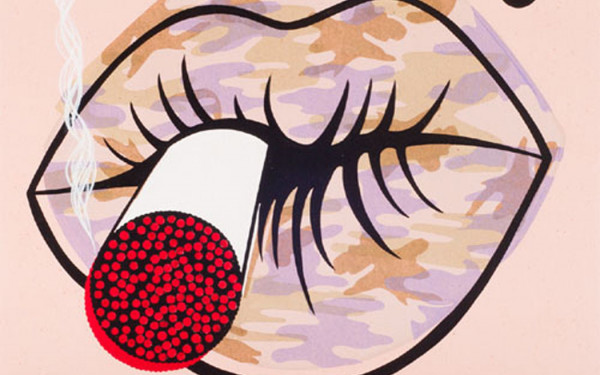Home Is Where the Zine Is
Writers Take Residence in St. Henri
Zines are personal. They are birthed from photocopies and glue sticks, from small scenes and big ideas. Zine-makers infuse their personalities into the pages.
Local zinester Amber Dearest is trying something a little more collaborative; a project that involves a lot more Greyhound buses and paperwork than the usual impromptu zine-making fest.
Her Fight the Boredom Residency Program is bringing a new take on the publishing trend—which has been around since the ’80s—to Montreal.
“I based it on a program that I actually participated in this past July that happens at the Robert Street Social Center in Nova Scotia,” said Dearest.
The premise is simple. Apply, get chosen, come to Montreal for ten days and leave with a fully completed, distributed and printed zine.
That is, if you’re on the application end.
For Dearest, things are a little more complex.
“Around 30 people applied, and in the end, two were chosen,” said Dearest about the application process. “There are about ten questions, and the general rules are that the project would fall under the Fight
Boredom Distro submission deadlines and the Ste. Emilie Skillshare anti-oppression mandate.”
Those mandates include things like combating racism, sexism, homophobia and transphobia, as well as developing more accountable communities—all ideals that Dearest says are strong parts of the project.
“A lot of what I distribute is by people that are queer, people that are feminists, people that are writing about gender and things like that,” she says. “Things that would generally fall under their mandate.”
Given her audience, the applications aren’t usually a problem. The difficulty is often choosing between too many deserving candidates, although sometimes the selection process allows for easy choices on her part.
“I had a funny letter exchange with someone who had a really unrelated project. But he was a white cis dude, and I was just, ‘You already have a pretty loud voice in general. I’m not going to fund your project in order for you to be able to be a little louder.’”
Last week, the second-ever resident left Montreal to return to her home in New Jersey. With her, she brought copies of her first printed zine, which Dearest said is about “what it means to be a sex-positive feminist while figuring out how to unlearn your oppressive and unhealthy habits.”
Although not a university student herself, Dearest is drawn to the environment, describing herself as “someone who just hangs out at them a lot.”
She secured the support from the Union for Gender Empowerment at McGill to help fund her project. Although the costs aren’t excessive—the residents stay in her apartment’s spare room—there are elements, like transportation and zine-printing costs, which need to be covered.
“That is basically the reason I applied for funding, because it would change the amount of people that could apply for it,” she said.
“I’m thinking about myself, too. I’ve also done this before. It’s hard, a lot of people just can’t leave a job, or school or whatever projects they may have for two weeks and disappear—those things cost a lot of money.”
Accessibility is a priority for Amber, who knows firsthand the stresses of essentially working full time in a not-for-profit field.
“I didn’t think about it that much until this year, when I was at the Chicago Zine Fest and normally I would just go for the weekend, but MegaBus was having a sale so I ended up staying in the city for ten days,” she said.
“I was really aware of price when creating the zine residency here—how I could make it as affordable and accessible for as many people as possible. Sometimes it’s nice not be the one who is constantly planning ahead and spending money.”
Before starting the residency project, Dearest wasn’t an outsider to the zine scene in Montreal. She’s also the creator of the Fight Boredom Zine Distro, which she started in 2009 as a way for more writers and artists and to distribute zines and have a database of the copies available to order online.
“I wanted to be able to stay home and work on stuff, but I also wanted to show people the city; I love it so much and I wanted to show people my little secrets, like how I get by living kind of ridiculously,” she said.
“And I write about Montreal so much in my zines; it’s kind of a way to make it real.”

2_900_598_90.jpg)
1_900_598_90.jpg)



.WebEdit_600_375_90_s_c1.jpg)

_600_375_90_s_c1.jpg)